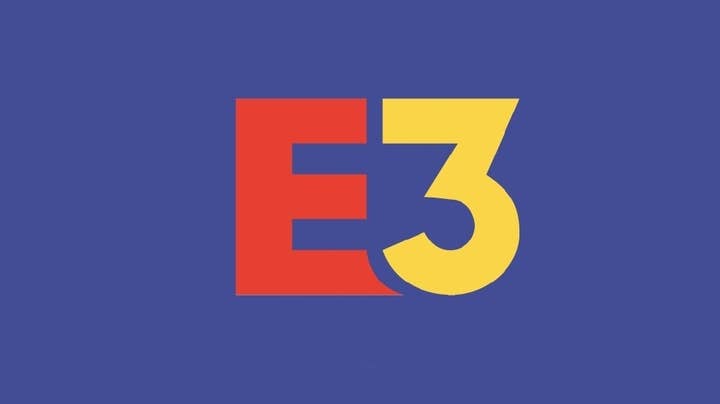Influencers and E3: Invasion of the tweens | Opinion
E3 as a festival for influencers and celebrities may horrify some, but is likely a good move - as long as we're realistic about the age demographics it will reach
I have what may be a deeply uncool confession to make. I have developed the same kind of visceral, physical reaction to the word "influencer" that most people only experience for things like nails being scraped down chalkboards, open-mouthed food chewing, or Piers Morgan.
It's an involuntary cringe that starts somewhere deep in my body, as if the entire experience of watching several schadenfreude-laden documentaries about Fyre Festival were compressed into a physical shudder and a (hopefully) imperceptible eye-roll. I know that some of you understand what I mean; I've seen the same looks on enough faces, shared enough knowing glances while a digital marketing person I deeply suspect of having been born on this side of the millennium waxes lyrical about people who mostly seem to be famous for taking endless selfies.
"The reality is that celebs and influencers didn't kill E3, because it's been dying a slow and unseemly death since long before they turned up"
I suspect, however, that the main thing this reaction says about all of us who share it is that we're quite old. In deference to that, I'm not going to make any of the obvious digs at the proposal deck for next year's E3, which was revealed by GameDaily.biz this week. Plenty of eye-rolling has already been done at plans to make E3 into an "influencer festival" in a way which doesn't seem to be in any way ironic (influencers are very, very post-irony). And yes, plenty of people of my generation and above no doubt find the celebrity and selfie focused event described within to be the very antithesis of the kind of gaming event or trade show we might actually want to attend.
But it's not for us; that's rather the point. It's an attempt to reinvent E3 in a way that makes it relevant and interesting to a totally different demographic, and which provides value to publishers and platform holders who have found the existing event format less and less compelling every year.
On that front, turning to fans, influencers and celebrities as a pivotal part of E3 makes a lot of sense. Regardless of your personal views of influencers, or mine, the numbers aren't lying; YouTubers, streamers and influencers of all stripes really are driving extraordinary amounts of traffic and marketing value, at least within the specific demographics they address. For certain types of product, aimed at certain types of market, there's inarguable value in engaging with influencers, to the point where it's pretty much de rigeur. Competing for those consumers without the endorsement and assistance of key influencers and streamers has become extremely difficult.
Lament the passing of the E3 of yesteryear all you want. The reality is that it's not the celebs and influencers who killed it, because it's been dying a slow and unseemly death since long before they turned up. The old style E3 became surplus to requirements the moment high-resolution video could be reliably broadcast around the world online, with every subsequent advance in broadband speed, streaming platforms and video-conferencing tech just being more nails in the coffin.
"Huge swathes of the audience for the most popular influencers are most likely still at primary school"
The need for the industry to gather in Los Angeles once a year to do business hasn't really existed for many years -- even for those things that really do require face-to-face meetings, the reality is that GDC has generally offered a far better venue -- and the consumer passion that kept the E3 brand alive has been ill-served by the event in years past. Throwing open the doors to influencers, streamers and Instagrammers galore is far from the worst thing the ESA could do by way of reinventing its wilting event. Throwing a business day into the mix, perhaps one that actually keeps the entry criteria moderately strict, might even preserve some of the show's original purpose to boot.
Yet if what is arguably the biggest event on the industry's calendar -- in terms of its overall reach and impact, if not in terms of actual visitor numbers -- is to refocus itself around influencer-led marketing, that should really be a jumping-off point for a conversation that the games business desperately needs to have but has been wilfully ignoring for some time. In the headlong rush to embrace influencers to its bosom and make them into the core of the marketing strategy for many of its biggest titles, the industry has been turning a blind eye to the tricky question of the age demographics to which these people actually appeal.
I alluded to it jokingly at the outset, but let's be honest; there aren't a whole lot of people in their forties and above who are engaging with influencers. Sure, older fans of streamers and Instagrammers do exist -- more power to them -- but by and large we're talking about an audience that's extremely young, and quite possibly even younger than most of you are imagining.

The actual age demographics of those viewing content on sites like YouTube, Twitch and Instagram can be elusive, not least because of distorting factors like YouTube's longstanding and clearly false insistence that 13 years old is the baseline for its users (since it said on the sign-up page you had to be 13, and surely nobody would lie about their age?). Hugely popular influencers like Jake and Logan Paul, or PewDiePie for that matter, seem to pitch their content towards an audience of teens and perhaps even early-20s viewers, but it's clear that much, much younger people are watching. Perhaps they'd like to reach an older demographic, but the reality is that a great many of the people who turn up to meet them at events or buy their merchandise at conventions are still so young they need to be accompanied by their parents.
"Engaging with influencers and online celebrities is almost certainly a sensible way forward for E3, but it's something marketers need to approach honestly"
Huge swathes of the audience for the most popular influencers are most likely still at primary school, which is part of why their "controversial" antics -- whether it's Logan Paul posting a video featuring the body of a person who had died by suicide, or PewDiePie paying people to hold up a sign saying "Death to All Jews" -- attract such fury and condemnation. Aside from being obviously in poor taste regardless of the audience, it's also apparent that defenders of these creators' actions imagine an audience of relatively sophisticated adults and late teenagers, while critics are keenly aware that a many of the people being exposed to this stuff are young children.
That the industry's marketing strategies have swung so hard towards influencers and streamers that even E3 is planning to centre them in its future plans is, therefore, a source of a little concern -- because it seems to have happened without even a hint of a conversation about the demographic targeting shift it signals. Firstly, this is obviously quite a repudiation of the stance the industry has taken for years; that it wants to chase older, more affluent (albeit more time-poor) consumers and grow the demographic appeal of gaming. Those are not markets you're going to reach into via streamers and their ilk.
And sure, this isn't a zero sum game. It's possible to engage with the teens (or perhaps more commonly, tweens) who hang on every word from an influencer's mouth, while also using alternative strategies to reach older, wealthier and less engaged consumers. But it's still extremely telling to note which of those strategies gets centre stage in the E3 2020 proposal.
Secondly, focusing so heavily on a segment of the media whose appeal tends towards primary- and middle-school kids is fine in principle -- that's a good and important business segment that's been part of the industry's bedrock from the outset -- but of course it comes with its own restrictions and issues. Marketing to kids is a minefield; you have to be very careful about the products you're pushing and how you're promoting them, with laws governing such activity in many jurisdictions and the looming threat of scandal or regulation keeping sensible marketers in line everywhere else.
The industry, unfortunately, has form in quietly ignoring the reality of the demographics it is reaching through its marketing efforts, throwing its hands in the air with a horrified gasp of "who, me!?" when it's pointed out that certain channels, publications and strategies amount to pretty clear attempts to market adult games to children and teenagers. Things have been much, much better on that front in recent years, but by engaging so enthusiastically with influencer marketing while carefully ignoring the reality of the demographics they reach, it feels like we're about to hit déjà vu all over again -- with the industry once again exposed to criticism over the kinds of games it is marketing to children (only this time, to add to the violence, you can also add the whole swirling mess around gambling functions).
Engaging with influencers and online celebrities is almost certainly a sensible way forward for E3, and a potentially powerful and effective tool for the industry's marketing more generally. But it's something marketers need to approach honestly, without letting enthusiasm run ahead of common sense or basic morality. The industry has long since shown that it has every right to make and sell mature games that contain challenging content aimed at adult audiences; let's not throw a spanner in the works by proceeding to promote those games via a channel mostly watched by eight-year-olds.

